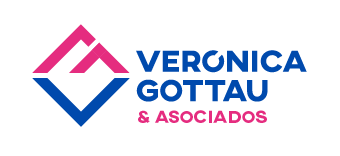This pandemic has challenged us to think about most of our work schemes and practices, some of which respond to long-established models that no longer reflected real needs, even before COVID. Some other practices, on the other hand, have suffered a setback, such as the separation between personal and professional life.
For example, remote or online working revealed that the long-held belief about leadership as control is being seriously questioned. However, if we consider leadership as part of the social fabric and remember that we all were or are leaders in something, then we will understand the importance of being close to work practices to see what is really happening, In this sense, the leaders of this time will see in their daily practice the need to be empathetic. A recent article in The Economist points to “transparency” as one of the basic skills, both for the leader and for those who are in the team.
Leading in times of uncertainty implies rethinking roles, creatingthe conditions for more autonomy in the workplace and fostering resilience, agility and decision-making. It is about trying to give more certainties than doubts and being able to create the necessary spaces for the team to express themselves about their personal concerns, family problems or even their health, something that before the pandemic used to be left out of the workplace.
Today’s leaders must know that the boundaries between personal and professional life, and family and work, are affected and people – sometimes – are experiencing stress and anxiety, much more than before.
The report ‘Learning Trends in the Workplace 2021’, published by Udemy for Business reveals that stress and well-being management, business communication and motivation and time management will be the most demanded ‘softskills’ this year.
Today the so-called soft skills are in the spotlight.
Why? Because there is no technology that can replace them and because even today, they are seldom taught during undergraduate training. In general, professionals end their university degrees with solid technical knowledge but with little record of their cognitive, emotional and psychosocial skills, which become the starting point of any job interview. This knowledge gap becomes more evident in extreme situations, as it is the case of a pandemic.
Work as “adding value.»
When we sit for the first time with the team of a client company, we usually ask them what ‘work’ really means. The answers are interesting and varied but only in a few cases people have a clear idea regarding work as “adding value.» Our services intend to raise awareness on the value that each person brings to their workplace and to foster cognitive flexibility to be open to learning new practices and incorporating new tools. In VG &Asociados we work on thinking and learning skills as strategic tools to strengthen teamwork.
In the workplace, knowledge circulates through the practices. Hence the importance of having a clear picture of: what isit that we do at work? Why is it done? What is it done for? This leads us to think that both management and strategy should be an organic part of our work and organizational practices, and it would be very risky to split these aspects.
Thus, for example, leadership must assist in the ability to understand in depth whathas been done, up to now, in a more or less intuitive way. This understanding requires the construction of meaning regarding the work we do and the organizational culture that we are part of.
In this context, the leader we need today is not necessarily someone who is seen as an expert, but someone who empowers others, someone who gives members of his/her team a place.
Technical knowledge is no longer enough because it remains in the individual domain, still devoid of social and emotional ties, and the knowledge that helps us grow must be thought of as a social phenomenon.
In turn, leading also implies designing a work plan that includes two key aspects: a) the plan, the design and b) the emergent. Whoever directs a team only on one of these aspects will do so in a rather improvised way. This is precisely where technical knowledge is complemented by the development of soft skills, of which adaptive responses, creative improvisation, cognitive flexibility and empowerment position are at the topof the list in terms of importance and impact.
Today work is no longer a means to an end, or a means of life. Today we talk about lives at work. In a time of so many changes, those who can generate adaptive responses will take the lead.
Asesoría
En VG & Asociados acompañamos a las empresas y sus líderes en el desarrollo de sus habilidades de liderazgo y habilidades blandas en general desde el enfoque del Aprendizaje Organizacional. Nuestra propuesta busca potenciar las capacidades subyacentes de las personas en proceso de capacitación, invitándoles a ser parte activa del proceso.



